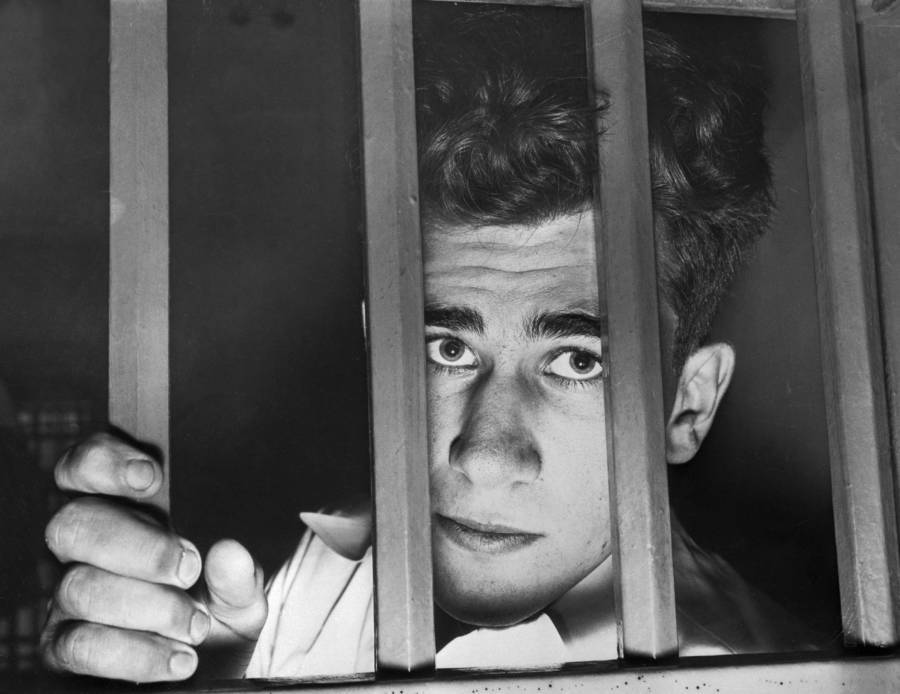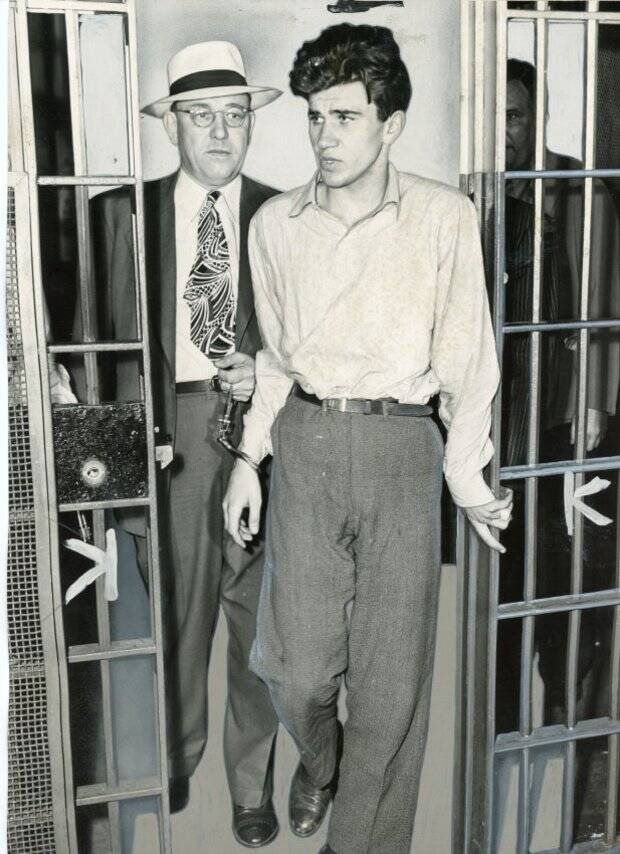William Heirens, The Alleged Lipstick Killer

Bettmann/Getty ImagesWilliam Heirens was subjected to days of torture by Chicago police.
In 1940s Chicago, a series of gruesome killings sent police on a manhunt for the so-called “Lipstick Killer,” but the rush to put someone behind bars resulted in one of the most controversial criminal investigations in American history.
If they got the right man, William Heirens was certainly one of the most terrifying teenage killers imaginable. Many people believe, however, that Chicago police did not, in fact, get the right man.
Heirens grew up in an impoverished household that led him to what he would call a “troubling habit” when he was 12: theft. Over the course of a year, he broke into numerous apartments and stole everything ranging from cameras to undergarments before being arrested at 13. After that, he was sent to correctional schools but continued to steal.
Despite his criminal activities, Heirens showed remarkable academic potential and qualified for the University of Chicago at just 16 years old, where he hoped to become an electrical engineer.
Those plans were derailed by three brutal murders on Chicago’s North Side between 1945 and 1946. The first victim was 43-year-old Josephine Ross, found dead in June 1945 with multiple stab wounds and a skirt wrapped around her neck. As brutal as it was, this case received little media attention at the time.
Six months later, 32-year-old Frances Brown was found murdered in her apartment with a bread knife in her beck. Scrawled on her wall in her own lipstick was the chilling message: “For heaven’s Sake, catch me Before I kill more I can not control myself.” Thus, the killer got his name.
The most horrific crime, however, occurred in January 1946 when six-year-old Suzanne Degnan was kidnapped from her bedroom. Despite a ransom note demanding $20,000, her dismembered remains were found in nearby sewers later that evening. This grossly brutal crime was the tipping point that fully sent Chicago into a panic.
A few months later, on June 26, a now 17-year-old Heirens was caught attempting a burglary and fled from police. After a struggle, he was knocked unconscious by an off-duty officer wielding flower pots.

Edgewater Historical SocietyHeirens spent three decades in maximum security for crimes many experts believe he never committed.
Police then found evidence of Heirens various thefts — and also claimed his fingerprints matched those on the Degnan ransom note.
What followed was a horrific interrogation that lasted days. Police denied Heirens food, sleep, and legal counsel. They poured ether on his genitals, punched him repeatedly, and even gave him a spinal tap without anesthetic. A doctor also injected him with “truth serum” without consent, during which Heirens allegedly mumbled something about a person named “George.”
Police declared that “George” was Heirens’ alter ego, and the press painted him as a dangerous killer with split personality before he ever saw trial.
But the case itself was built upon dubious evidence. His fingerprints on the ransom note, for example, only showed nine points of comparison when FBI standards required 12. Additional prints allegedly matching Heirens weren’t “discovered” until after his arrest, despite months of prior examination. Multiple handwriting experts have also since determined that Heirens’ writing didn’t match either the lipstick message or the ransom note.
Facing the electric chair, Heirens accepted a plea deal rather than risk execution. He wound up spending the next 65 years in prison, maintaining his innocence until his death at age 83 in 2012, making him Chicago’s longest-serving inmate.
Next, unravel the mystery behind another young murderer, Lizzie Borden. Then, hear the grisly tale of the twenty-something Moors murderers. Finally, read about infamous serial killers who will chill you to the bone.





